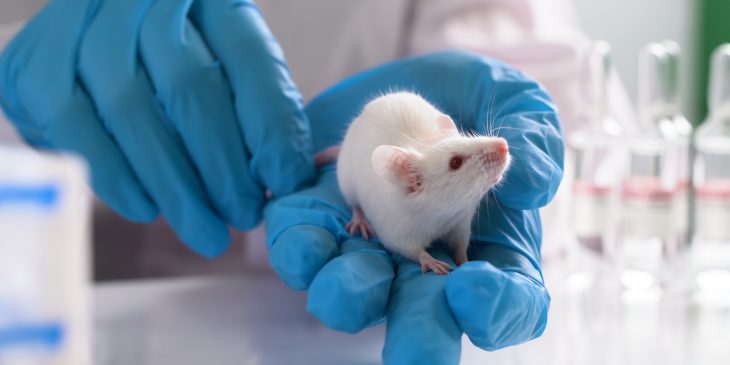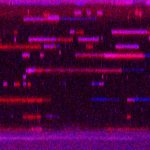Blood tests are a convenient and relatively painless way to monitor for disease. But identifying the important molecules to watch for in the blood – called biomarkers – has always been a guessing game. Researchers at the University of Pittsburgh and UPMC recently developed a mouse that could make the hunt for new biomarkers more of an exact science, which they describe in this week’s issue of PNAS.
“Blood has thousands of proteins in it, and it’s hard to know which of those proteins is going to be a good biomarker. You don’t know what to look for,” said study senior author Dr. Toren Finkel, director of the Pitt and UPMC Aging Institute. “This is an attempt to develop a rational way of finding new biomarkers.”
Finkel’s technology makes it easy to figure out which proteins came from which tissues, which is important because, for instance, a good biomarker for heart disease really should be coming from the heart.

Finkel compares blood proteins to cars on a freeway. Looking from the top, you can’t tell where any given car came from. But if there are license plates, you can tell which cars came from which states.
To explain how the method works, Finkel compares blood proteins to cars on a busy freeway.
“If you look from the top, you can’t tell where any given car came from. But if you look at the license plates, you can tell that this car came from Maryland and that one came from New York,” Finkel said. “This mouse gives proteins a license plate.”
This “license plate” is made of a small molecule called biotin, which forms a little hook on the end of the protein, making it easy to pull out of the protein-rich soup of the animal’s blood.
Any given mouse is genetically engineered to add biotin to only those proteins produced in a specific organ. For instance, one mouse may have tags on its brain proteins, while another has tags on the proteins coming out of its pancreas.
The PNAS paper focused on proteins secreted by the muscles as a proof of principle, but Finkel is starting to apply his technology to a disease that’s in sore need of early detection strategies – pancreatic cancer.
As we collectively witnessed with the sudden passing of Alex Trebek, pancreatic cancer manifests as a devastatingly swift illness. Only 5-10% of patients survive for more than five years after their diagnosis.
This grim prognosis is largely due to the cancer being detected far too late. There are often no symptoms until the cancer is quite advanced. But if there was a good blood biomarker, then more cases might be caught in time for treatments to be effective — perhaps even before cancer develops.
To that end, Finkel and his colleagues are creating a mouse that tags pancreatic proteins. First, they’ll catalogue those secreted into the blood of a healthy animal. Next, they’ll turn on a cancer-causing gene in the pancreas and continue to monitor blood proteins coming from that organ. Any changes associated with early stage cancer could be good candidates for follow-up studies in humans.
Finkel is also using this platform technology to hunt for biomarkers of Alzheimer’s disease.
“There are endless possibilities for this mouse,” Finkel said.









